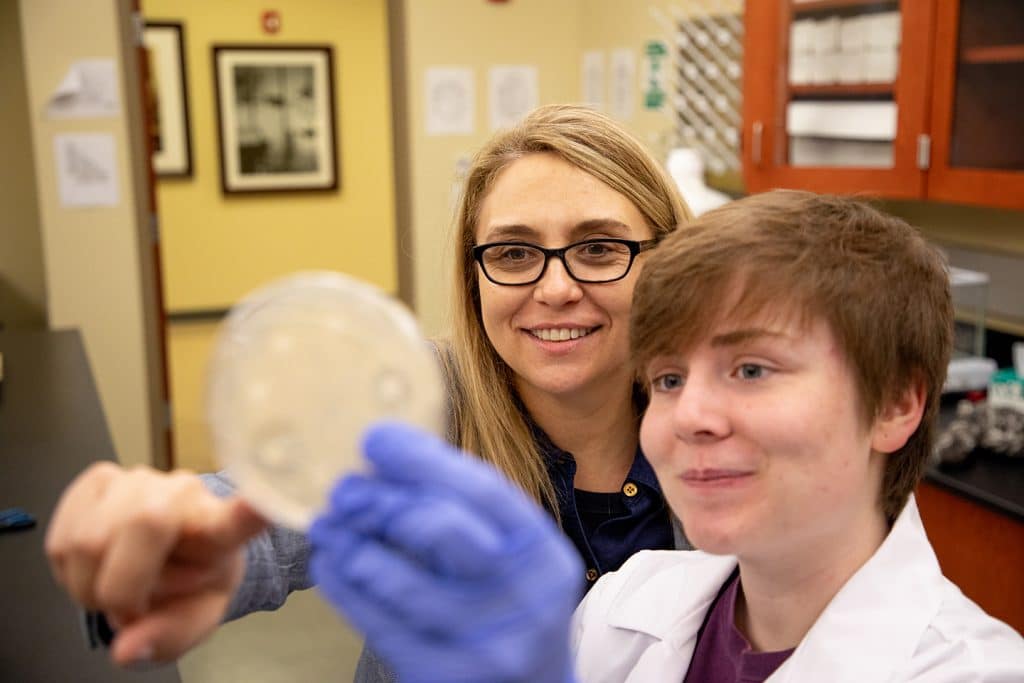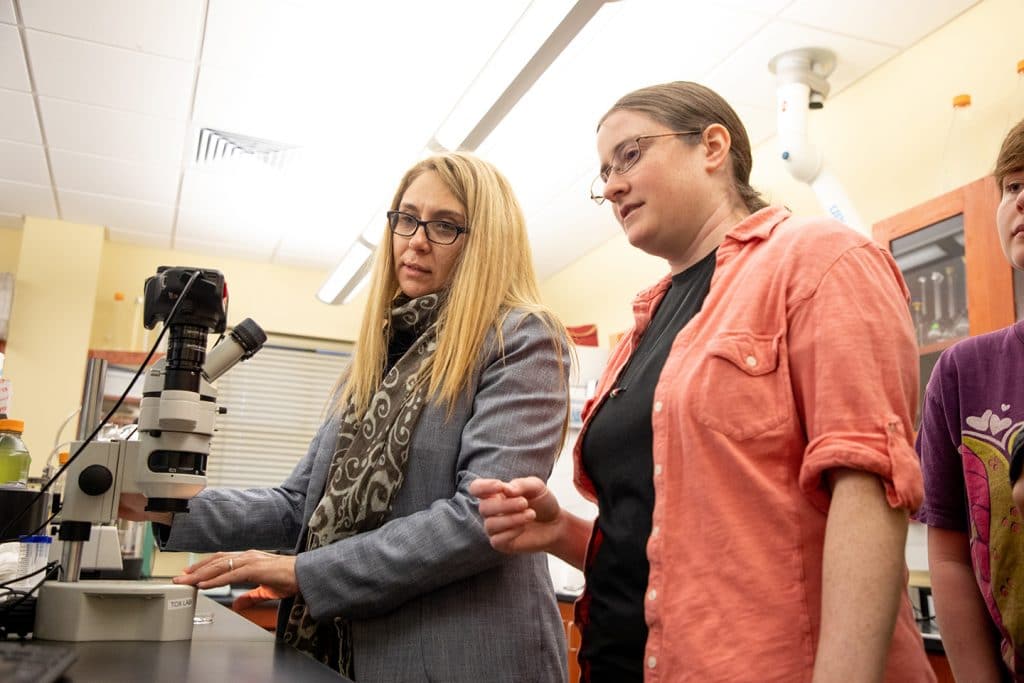
The grant period is for spring 2019 and provides support for Odendaal and one undergraduate student. The research centers on in vivo examination of the obesogenic effects of heterocyclic amines from cooked meat using Daphnia magna as a test organism. The species has historically been used to assess the adverse effects of industrial chemicals and contaminants in the environment and in ecosystems. D. magna had not previously been used to investigate the in vivo effects of dietary chemicals and food additives.
Odendaal has long been interested in studying the effects of dietary supplements on the growth and reproduction of D. magna. She has established a Daphnia toxicology research laboratory at SAU and successfully recruited and mentored undergraduate students in her research projects.
“I know the importance of getting students involved in research as I have benefitted myself as an undergraduate from working closely with faculty mentors on their research projects,” Odendaal said. “Students have been involved in maintaining Daphnia cultures, preparing algae for feed, and setting up and conducting toxicological experiments.”

“Not only is scientific research where the ‘rubber meets the road’ with respect to scientific understanding and practical application, but research experience is what gives our graduates a competitive edge when applying to pre-professional and graduate schools,” Odendaal said. “SAU has been very supportive of undergraduate research.”
Undergraduates assisting in Odendaal’s research are from both Biology and Chemistry tracks, allowing for multidisciplinary collaborative research projects where individual contribution is required for the success of a project.
“Students get to build technical laboratory skills and acquire proficiencies in various aspects of research,” Odendaal said. “After a semester of gaining research experience, I encourage students to apply for their own SAU undergraduate research grant.”
She added that it is important to obtain external research funding in order to establish the necessary infrastructure required to support research. With her INBRE grant she has purchased a fluorescence microplate reader for assessing the lipid alteration in D. magna. Additionally, this instrument can be used for a broad range of research applications and thus strengthens SAU’s research capabilities.
“Due to the multidisciplinary nature of her teaching and research interests, Dr. Odendaal was able to attract a wide range of undergraduates who have reported on their research results at various professional meetings. I am very glad she was able to secure this award, which will create further opportunities for more students down the road. Dr. Odendaal is a great research mentor,” said Dr. Abdel Bachri, dean of the College of Science and Engineering.
This grant was made possible by The Arkansas INBRE, which is funded by a grant from the National Institute of General Medical Sciences under the Institutional Development Award (IDeA) Program of the National Institutes of Health (NIH).
